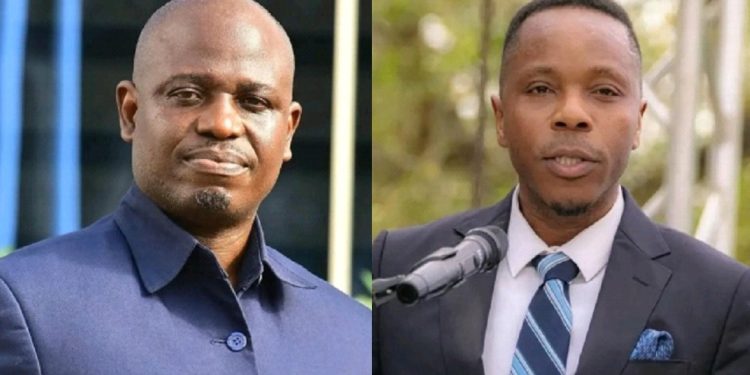By Hassan Osman Kargbo
A heated exchange has erupted between the Leader of the Opposition in Sierra Leone’s Parliament, Hon. Abdul Kargbo, and the Chief Minister, Dr. David Moinina Sengeh, over what both men describe as matters of national interest.
Speaking on the popular Good Morning Salone program on Radio Democracy 98.1 FM on Wednesday, June 5, 2025, Hon. Abdul Kargbo issued a stern warning to the Chief Minister, urging him not to “dictate” his actions, especially when it comes to issues concerning national affairs.
Hon. Kargbo, who is also a representative of Sierra Leone in the ECOWAS Parliament, stressed that he was democratically elected by the people of Sierra Leone and, as such, reserves the right to speak freely and independently in all parliamentary settings, both nationally and regionally.
“I was elected by the people of Sierra Leone. I represent their voice not only in our national parliament but also in the ECOWAS Parliament. No one, including the Chief Minister, has the authority to dictate what I say in matters of national interest,” Hon. Kargbo said. “Dr. Sengeh was appointed by the President and can be dismissed at any time. I, on the other hand, hold a mandate directly from the people. As long as what I say is right and in the interest of the citizens, no appointed official should interfere.”
The statement appeared to be in response to recent criticism or concerns allegedly raised by the Chief Minister regarding Hon. Kargbo’s statements or conduct in his regional role.
In a swift rebuttal during the same program, Chief Minister Dr. David Moinina Sengeh responded by asserting his own rights and responsibilities as a citizen and senior government official.
“While I am indeed the Chief Minister, I am also a citizen of Sierra Leone. That gives me every right to question any public official, including members of Parliament, when it seems things are going wrong,” Dr. Sengeh said. “It is not about power or appointment—it is about accountability. No one is above scrutiny, especially when it comes to national development and public interest.”
Dr. Sengeh emphasized that elected representatives must be prepared to accept public and official feedback, particularly when their actions may affect national cohesion or Sierra Leone’s international image.
The public disagreement has sparked a fresh wave of political debate in Sierra Leone, with citizens and analysts weighing in on the roles of appointed and elected officials in a democracy. Some have praised Hon. Kargbo for defending the autonomy of elected lawmakers, while others have supported the Chief Minister’s call for accountability and oversight, regardless of political status.
Political observers suggest the incident highlights a growing tension between the legislative and executive branches as the country grapples with post-election governance challenges. Whether this latest dispute will lead to further political divisions or open the door for constructive dialogue remains to be seen.
Both Hon. Abdul Kargbo and Dr. Sengeh maintain that their actions are rooted in patriotism and a commitment to national development.
As of now, there has been no official statement from the Office of the President on the matter.











